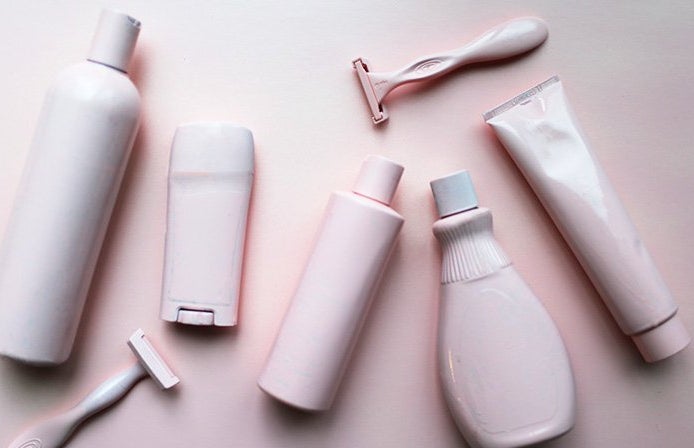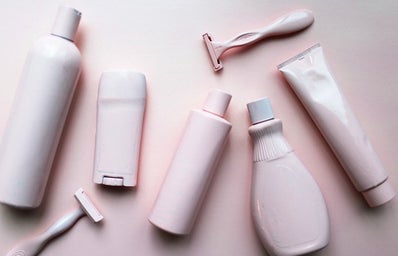With Earth Day quickly approaching everyone is talking about how to be more environmentally friendly, especially in the realm of beauty. The beauty industry is one of the industries that contributes the most to water pollution due to its standard plastic packaging.
Yet, they don’t seem to care about their effect on the environment and switching over to safer products and packaging. Even brands that claim to use recycled plastic are still using a majority of new plastics and it will still end up in the Ocean.
Slowly but surely, some companies are making small transitions especially with low waste companies who offer things like shampoo bars or mascara blocks in a tin. But there is no option for sustainable products for ethnic or textured hair.
When we think of curly hair products we are quick to think of Cantu, Shea Moisture, Deva Curl, Carol’s Daughter and more. But all these companies package their products in plastic without any alternatives for low waste packaging like glass bottles or metal tins.
For many people making the switch to natural hair and a more eco-friendly lifestyle, it seems that both can not exist. The majority of sustainable hair care brands do not target the needs of textured hair. Their main focus is selling to women with straight or wavy hair, especially Causuain women.
Women with texture hair can technically use these formulas, but they won’t necessarily get the results they want and need. Most of the zero waste products are only shampoo and conditioning bars when traditionally we need more moisture and a product like leave-in conditioners, curl creams and gels.
Even brands that claim to use natural products don’t even use natural products and continue to use synthetics hidden in the label. So you’re literally dumping chemicals down your drain. There are fair and few sustainable beauty brands for curly hair and most of them are not accessible and their sustainability starts at the ingredients but ends at packaging because it’s all plastic. There isn’t a win-win situation in the textured hair care world.
Yes, we can make homemade products but often it’s more hassle than it’s worth. If the eco-friendly beauty industry isn’t asking straight hair women to make their own hair care, why are they asking women of color too? Apple cider vinegar washes can only go so far, eggs smell straight up rancid and making your own conditioner can cause a huge mess to quickly go bad.
With all this said, I don’t that it should be difficult to ask eco-friendly brands to think about WOC or ask WOC brands to make the switch to eco-friendly packaging. It should not be a privilege to use eco-friendly products because they are not made for you. But sadly, being eco friendly is a sign of privilege in the modern-day world due to wealth and accessibility. If hair care brands made a change however it would make eco-friendly living attainable for every woman no matter the hair.


